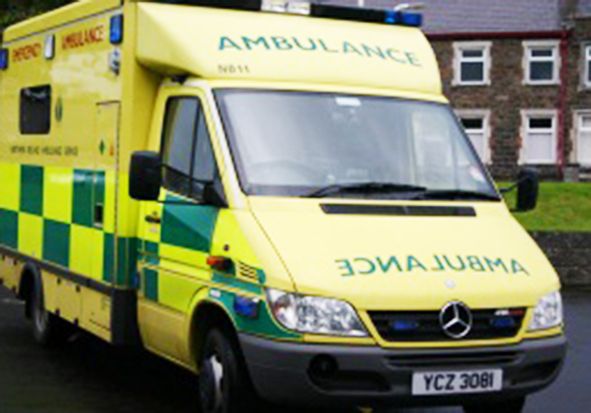Ambulance Service issues apology after six-hour call delay
Ambulance Service issues apology after six-hour call delay
15 October 2025

THE Ambulance Service has apologised to Mr MacNabb for the six-hour delay in responding to the emergency call.
In a statement, the organisation said it was “sorry” for the delay and explained it operated a clinical triage system to ensure that the most clinically ill or urgent calls receive the most immediate response.
A spokesman said Category 1 calls to the Northern Ireland Ambulance Service (NIAS)are those which are immediately life-threatening and should be responded to within an average of eight minutes.
He said Category 2 calls are those which are serious but not life-threatening and should be responded to within an average of 18 minutes, with Category 3 calls those which are urgent and for which an ambulance should be on scene within 120 minutes (2 hours) for 90% of such calls.
The spokesman said an example of a Category 3 call would be a traumatic fall which is not immediately life-threatening.
He continued: “Regrettably, response times to those patients whose clinical need is less urgent, currently as a result of pressures, will be longer than might be expected by patients and their carers.
“We understand how stressful and upsetting it can be waiting for an ambulance which is taking longer that might reasonably be expected. It is not the service that we want to provide.”
The spokesman said NIAS will always try and respond to every call as quickly as possible and will continue to prioritise those calls which are immediately life threatening.
He said that within the organisation’s control centre, highly skilled paramedics are available to give advice to patients with less urgent clinical needs.
“These paramedics may also make follow-up calls to patients to check on their condition and are an invaluable resource within our service delivery as they often ensure that ambulance crews are not tied up unnecessarily with calls for which alternatives exist,” the spokesman explained.
“NIAS has previously advised through media outlets and social media channels of the challenges we face, on a daily basis, in responding to 999 calls and have, as we do now, asked for patience from those calling.
“Like many areas of health and social care, the demand for our services exceeds the capacity we have to respond in a timely manner.”
The spokesman said NIAS is currently working with the Department of Health to progress a business case which recommends a multi-year investment plan to provide all the staff, fleet and accommodation required to sustain delivery and performance.
“In the meantime, NIAS continues to recruit and train as many staff as possible within available resources and to prioritise calls in line with the operational targets,” he continued.
“Some of the challenges facing NIAS are also being experienced across the other five health and social care trusts and this impacts upon the ability of crews to handover patients at emergency departments.”
The spokesman added: “These delays in hospital handover times further impact greatly on the number of crews we have available to respond, in a timely manner, to emergencies in the community and this was certainly a factor in the delayed response to this call.
“NIAS continues to work with colleagues across the health and social care system to find solutions to these issues.”


